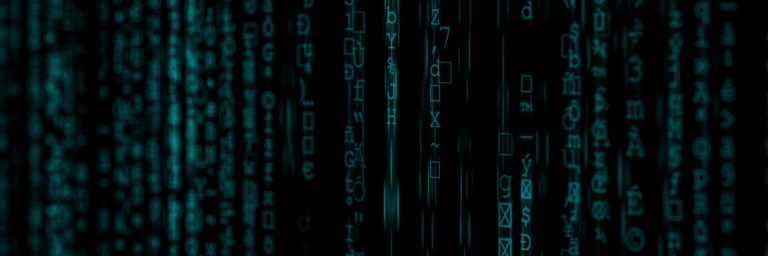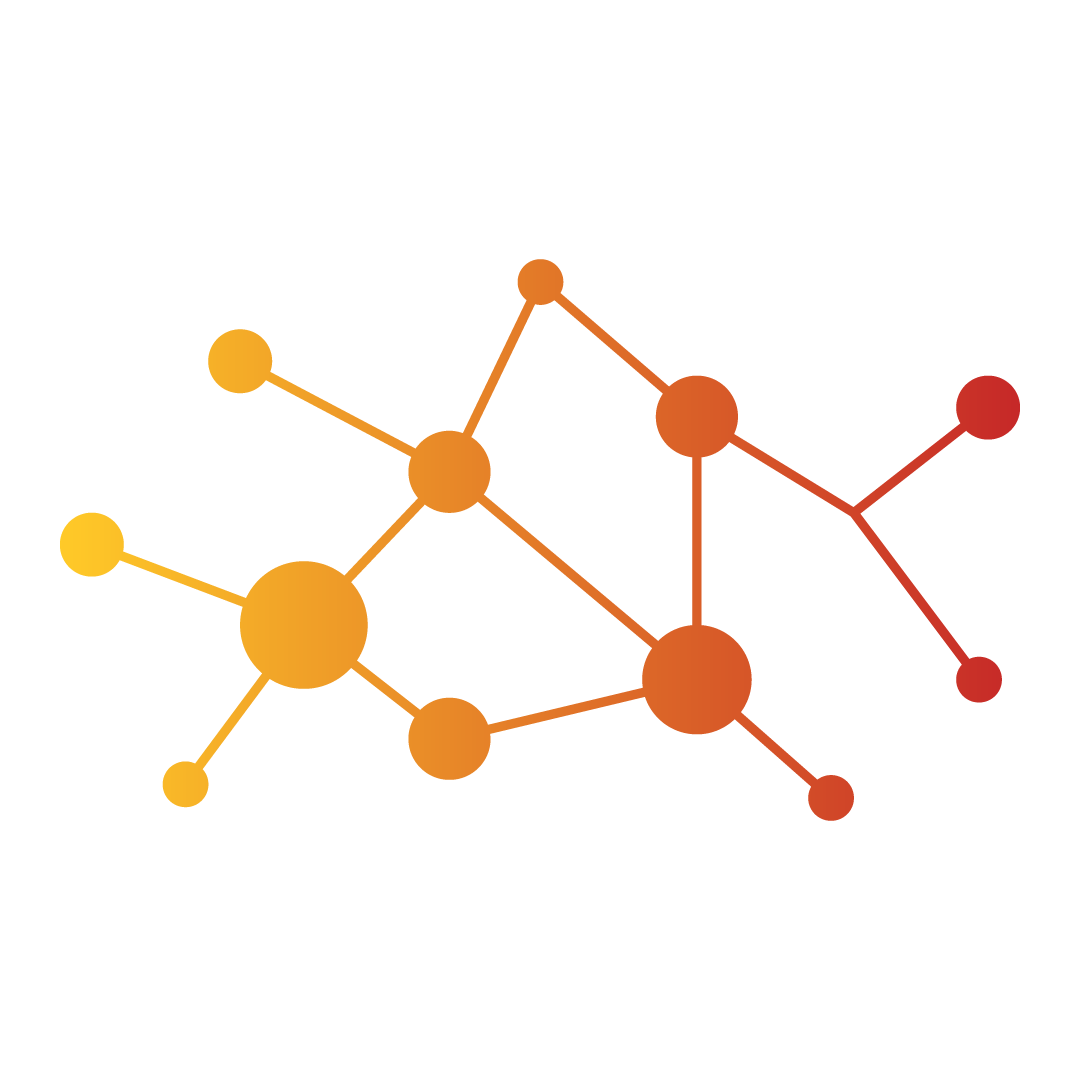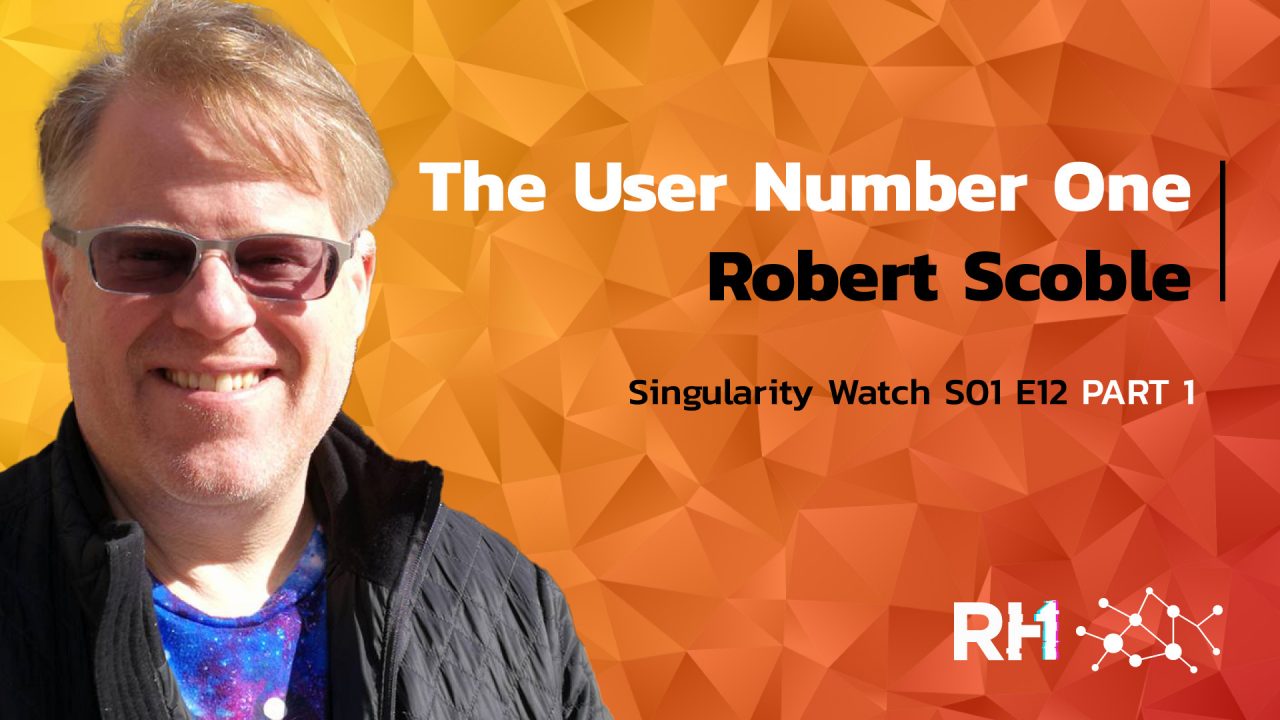“Uber was invented right in front of me in a Paris snowstorm. I’ve seen a few things in my life. I’m the Forrest Gump of the tech industry, I just show up at the right time.“
When you look at a disrupting or a booming technology, you can be sure that Robert Scoble is somewhere near it.
Today, Robert is probably one of the greatest influencers in the world of VR and AR. In 2016 he published The Fourth Transformation: How Augmented Reality & Artificial Intelligence Will Change Everything, while in 2020 The Infinite Retina came to light.
Robert witnessed the origins of Silicon Valley, and redefined the perception of one of the giant companies out there, Microsoft. In this episode of Singularity Watch, Robert told us when and how he got in all these amazing places, and what’s cooking in Apple’s and Facebook’s kitchens.
Kavya Pearlman: You’ve been involved in so many future-defining moments. Just name like the top three or four that you think were more remarkable.
Robert Scoble: My number one was Elon Musk gave me the first ride in the first Tesla before he gave his best friend a ride. I was using a Nokia phone camera back then to livestream it to about 1.000-2.000 people. I was the first to take a 360 camera to Coachella and the first one to see Flipboard. I showed Ashton Kutcher Flipboard, and he became an investor. I was the first one to use Siri, which was launched in my son’s bedroom. Doug Engelbart and Adam Cheyer came to my house six months before it was released, so I got to see it the first day. It’s remarkable because that was just about 10 years ago. Today, a third of the M1 Chip in the Macintosh is for the neural network, a technique that didn’t exist before Siri. So it shows how fast the world can change and how much resource could be put behind a new technology when it starts rolling along.
Kavya: Exactly. It looks like all these paradigm shifts happened right under your nose. And in fact, you were privy to some of this information before the world knew it. So what do you know about Apple? What’s going on?
Robert: Apple was my first company. I toured it when I was 13 years old in 1977. My dad bought an Apple II really early. I grew up in Cupertino, and I was in the first computer club at High Junior High in Cupertino, where they bought Apple IIs in 1977. I’ve been around, and I got to watch Apple grow up from a small company, a small startup, to being the most profitable business in the world today. Nobody really knows Apple because they’re able to leak so much stuff from so many different teams that it’s hard to really understand what the heck is going on there. And this isn’t the first time: my brother-in-law worked on the iPhone, and my best friend worked on the iPhone at an early stage. I was working at Microsoft 15 years ago, and they kept telling me, “Steve Jobs is starting up the phone project again,” and a couple of months later, “Steve Jobs just killed the phone project.” It’s so hard to figure out what is actually happening in these companies, what they’re actually trying to do, and how they’re different from Facebook, for instance.
I’ve been fortunate: I’ve seen some of the strategy docs from Facebook about where they’re going in the next three to five years, and so I know why they’re focusing so much on AR, and why Apple now is leaking “oh, we’re doing VR and stuff like that.”
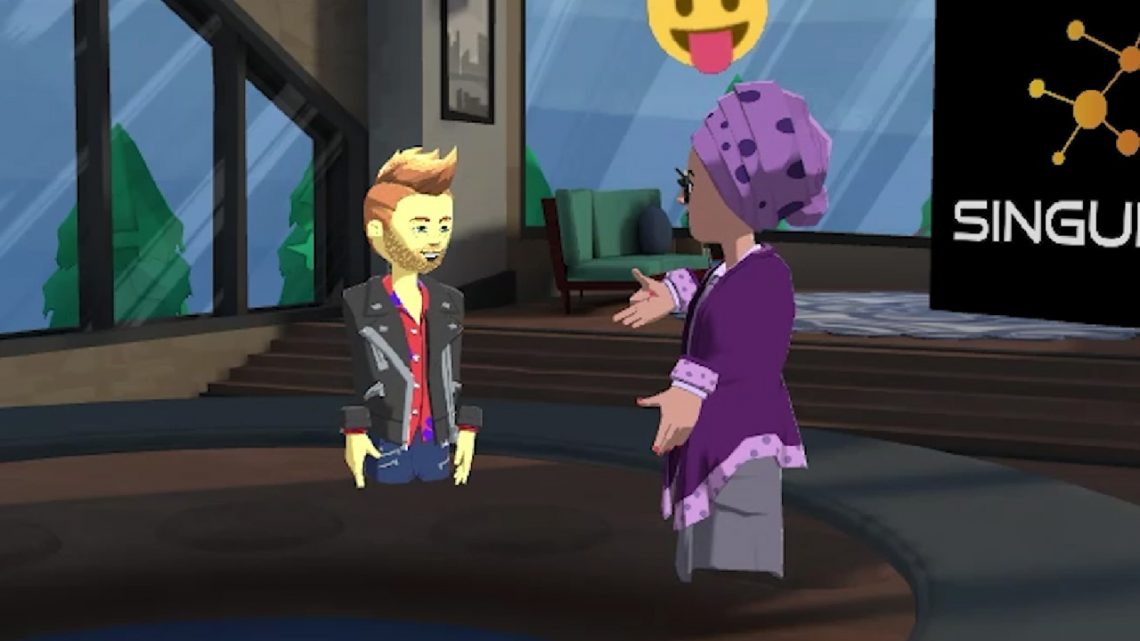
Kavya: Can you chart your career path? How it started and how it’s being?
Robert: I started by working in a camera store after high school. More accurately, a consumer electronics store, something like a Best Buy, but now it’s not a Best Buy. It was a tiny family store in Silicon Valley. And that’s where I learned how people buy things. A thing that I really understand is what is the buying behavior of people and how people’s behavior change when new technology comes out. For instance, I was the first to sell an autofocus camera in Silicon Valley: the Minolta Maxxum came out. I sold 40 of them in the first hour when the shipment arrived because I was so excited. But I got to talk to many people about this new technology and understand how they looked at it, how they resisted it, or adopted it. There was a lot of resistance from pros back then. It was like, “I’ll never use autofocus! The manual focus works just fine.” Today, we are all using Canon mirrorless cameras with autofocus because the autofocus is way better than we are now. Still, back then, it wasn’t way better, it was the disruptive technology. It was better than me, but it wasn’t better than a sports photographer, who got used to really accurately focusing on a runner coming toward him or her. So I was able to watch how people resisted things or bought them. At the beginning of my career, I used to go to a church in Silicon Valley called Evangel Christian Fellowship. The year after I showed up there, they bought a bunch of TV equipment, three cameras, a switcher, and a big-ass beta VCR, and that whole system cost $500,000. So my first video camera cost 100,000 plus dollars, and it’s way shittier than your iPhone is today. This camera was huge, and yet, you had to warm it up for an hour before you even started tuning it. Then you didn’t have chips for the image sensor, you had tubes, and you had to align them like with a telescope. Now you don’t have to do any of that work, and it’s sort of funny how you have to learn stuff in your life and then just throw away that knowledge.
Kavya: How did you find yourself in all those rooms?
Robert: Most of it is passion. Here’s an example of that: back in the late eighties, I was at West Valley Community College studying to be a computer scientist, and I kept seeing this car with a specific license plate on it. Most kids would never even noticed such a thing, but I knew who that was because it was Apple’s co-founder. Why was the co-founder of Apple going to a community college at seven in the morning? What is going on here? He’s the engineer who started Apple, and his mind works like an engineer. He parked in the same parking space, and he got there at precisely the same time every morning, which I finally figured out as I kept waking up earlier and earlier. I finally got there before his car showed up at seven in the morning, which took me hard because I’m not a morning person. And I said, “hey, Steve, I work for the school newspaper, and I wonder what you’re doing here.” Most people wouldn’t have the instinct of – one, knowing who he was, two, stalking him, and three being passionate about talking to this guy. So, passion got me into so many things. For instance, my love for music took me in the front row of Coachella concerts when I got the 360 camera. And so, the tech team at Coachella let me in with a camera. Passion will get you a lot of places. And then knowledge, because I grew up in Cupertino and I had an Apple II since 1977, so I knew something about what he did. In fact, I helped build motherboards for the Apple II. So, Steve and I had lots to talk about Apple’s early days and how that was all built up, and what he was trying to do. And then the rest of it is communication. Are you a good writer? Are you good at video? Are you good at something to communicate? I have pretty good skills in writing and communicating because of my TV experience and my photography experience.
Kavya: You’ve published at least two essential books in the last five years: The Fourth transformation in 2016 and The Infinite Retina in 2020. They’re all about the impact that XR and AI are going to have on our world as we move forward. So let me take a short step back. When this pandemic erupted one year ago, many of us thought this could be a defining moment for the XR domain. How did it go thus far? What’s your opinion?
Robert: The adoption curve isn’t there yet. What do I mean by that? To use an old Silicon Valley metaphor, the pandemic basically plowed the field. Everybody is on zoom, but very few people have an HMD like the one I’m wearing. I’m wearing an Oculus Quest 2, and very few people, even in the wealthy Silicon Valley technologic, advanced world, have one. If I go around to my neighborhood and ask, “do you have a VR machine?” most people do not, even here. And so, if you go to Kansas or someplace that isn’t as technologically advanced or as rich, you’re not gonna find VR at all. That is about to change, and there’s a bunch of reasons for that. First of all, the field is plowed now. Now I don’t need to explain how to use a computer and how to use Zoom. Everybody now has to learn those gilts, all the way down to schoolteachers and others. That really is important for setting the stage for what’s coming next. People who are in AltspaceVR or in VR know this is the way we’re gonna work and play and entertain each other. It’s just it’s a really early day. The number of polygons that we have to play with is still relatively low. With VR, we’re in the stage where things are expensive. Many people buy a big video card for their PC and then purchase a 500-600$ headset and then maybe even buy some gloves and more sensors. We’re seeing people in some of these things like VRChat doing dancing now: that requires several sensors and perhaps even a mo-cap if you really want to do it the best possible way. What I study is how people change, and we’re about to see a considerable change, partly because you can show this to an executive and say, “this is how the future is gonna work.” Do you think the future is gonna be a tiny rectangle in your hand anymore? No. This is how the future should work, where I can actually hand virtual things to you, I can actually have a presence with you, I can do something with you. I could be immersed in media, have big video screens, or whatever. Virtually we can do anything, and we know this is how the world is gonna work in the future. It’s not even a discussion about this versus rectangular screen. It’s just that right now, I have to put a big ugly thing on my face to do this, and it’s 300 bucks. Not everybody has 300 bucks, particularly right now, because many people have been laid off. But I was showing billionaires VR five years ago, and very few of them bought it. So it wasn’t about the price, there were other resistances to this new technology. And because it’s on our face, it really gets a lot of resistance. People are very particular about what they put on their faces, particularly women who have make-up on. My wife can’t even wear it: she instantly feels nauseous, and she doesn’t like the experience of being in this VR world. And my autistic son doesn’t like how it feels on his face again. He has autism, so he has different sensory capabilities than a neurotypical like me. Although, I don’t think I would ever call myself “neurotypical.”
Kavya: Then, what about 2021? Is this gonna be the year of the breakthrough? Are we there Yet?
Robert: I think this is a transition year, and I think that’s the transition year for many reasons. We’re still dealing with the pandemic; we haven’t yet had the vaccine for everybody. We haven’t yet shut the door on the pandemic. By the end of the year, I’m expecting the door to be shut on the pandemic, at least at some level. My guess is that by Christmas time, we’re gonna be able to have Christmas dinner with all of our family again for the first time in a couple of years. If I have 20 people over my house for Christmas dinner, and I have a new headphone or a new VR machine, I’m going to show it to everybody. I expect we’re going to see a lot of new devices by Christmas. Apple is signaling that they’re going to come in 2022, but I’m thinking we’re going to see it this year, at least showing that to developers.
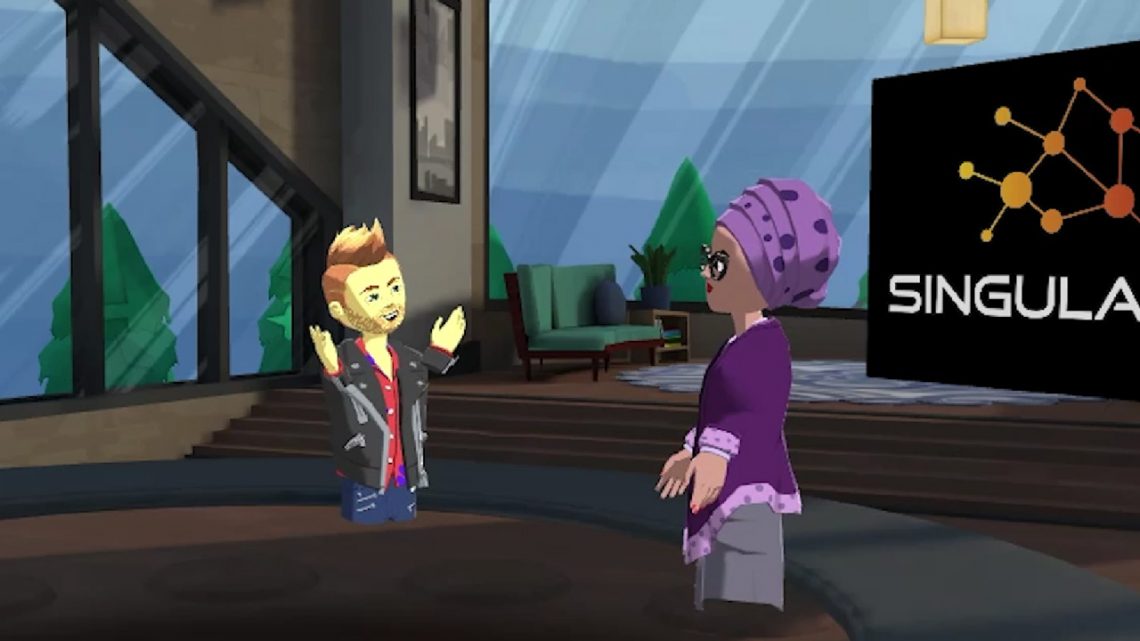
Kavya: I’m dying to get some sort of inside knowledge on how they’re thinking about privacy. Everyone says that Apple is going to be a good guardian of our privacy. But what is privacy in an era of constant reality capture? How do you then redefine expectations?
Robert: Apple is building what I call a “privacy temple.” If you go to Jerusalem and walk around the village where Paul the Baptist grew up, you spot a big building called the temple in the middle of it. But it wasn’t the church. So, what was the role of the temple? The temple was where you did all your grocery shopping, your entertainment at night, your education. It was where you interacted with the government, paid your taxes, even did some gambling and stuff like that. Jesus talked about overturning the temple table because he was mad at how greedy everybody was in the temple. Well, Apple is building that metaphorically. Inside, they’re building a temple wall, a “walled garden” that keeps people from going in, and with a security guard at the door. Suppose I’m a cop, and I want to look at your information and see where you were yesterday because I think you murdered somebody or something like that. What do I actually get to see from Apple about you? Well, inside the temple, your location is definitely open to the cops because that’s how a cellphone works. So, we know that if a cop wants to look at your private data about where you were yesterday, they can do that. They can give a court order to Apple, and Apple has to turn that over to them, or AT&T or Verizon, all of them have that. Now, inside the temple, on the floor is identity: knowing who you are means you have access to the temple, and we see this with Apple, the first thing they want you to do is to set up an ID, set up a password, and they really want you to put in a credit card for Apple Pay because that’s going to be a big part of their strategy. In five years, you’re gonna walk into a store with glasses on, and you’re just going to take things off the store. My friends working at Walmart are building a system that requires you to have your email address, your Apple ID, and a credit card attached to it. The glasses are going to have eye sensors to see the back of your retina. They can know if Kavya is wearing the glasses right now versus Robert is wearing the glasses. So, if I put on your glasses, I’m not going to be able to see your data, I’m going to see my data, or I’m gonna see the guest account data. When you put it on yourself, you see Kavya’s world, all of your stuff. You’re also going to be listened to, already your voice is very unique and not takeable. Ten years ago, the government lab here in Silicon Valley showed me that their systems can tell the difference between Kavya and me by listening to just a few words. And by the way, even if you used helium and change your voice, or even if you did an accent or try to change your voice to a high voice, you cannot hide it. The computer is listening to the frequencies coming off your vocal cords. It’s very unique to you, very unique to me. I give a class to many VR entrepreneurs, and we came up with 14 ways to figure out it’s Kavya. Your body shape, your skeletal and vascular system, your blood vessels in your face. A camera can see that. Instead, I am a human, so I can’t see this. So, when we start talking about technology now, it’s about to go to a pretty freaky place.
Back to the privacy temple that Apple is building, Facebook is building one, too. Facebook actually is spending a lot of money. Boz and others have said they are really investing in privacy, and they want to be private. But the real difference between Apple and Facebook is Apple is not going to allow advertising inside the temple wall. If you’re going to leave the temple and go outside, to the Internet’s hinterlands like the New York Times, they will warn you when you leave the temple door. “Hey, you’re going outside. It’s a rough world out there; they might steal your privacy and use it for something. Inside the temple, we’re gonna keep you safe”. Here’s an example: on your Apple Watch, it watches your heart rate. The heart rate goes to Apple’s cloud servers, and then it goes down to my phone, so I can see my heart rate in the health service app. That’s inside the temple wall. It does not go outside the temple.
A better example of this is Spotify versus Apple Music. When I listen to Spotify, my Discord shows you what song I’m listening to. So there is an API call that shows the song over to Discord. That’s not allowable in Apple’s privacy temple, where Apple stuff stays in to be watched, protected, and keep the consumer safe and not freaked out.
That’s really the difference. On the other hand, Facebook says it’s more open; it likes when Spotify tells Facebook about what song you’re listening to because then it’s possible to figure out what kind of advertising to show. I actually like that Apple music doesn’t do that. On Facebook’s world, they’re gonna have advertising inside the temple, and that’s always going to be the real difference here. You’re going to have the same data goes to both systems. The same architecture basically is protecting privacy. Still, Facebook is doing all this surveillance to show you advertising, and that’s the business model of Facebook. Apple’s business model is to sell you a device and sell you a service. So it’s a very different business model, leading to different privacy choices by these two companies.
Kavya: Is this a big privacy shift?
Robert: I’ve been doing a lot of new research for a new book, and I’ve been talking to a lot of people all around the world. Facebook doesn’t have that trust for this new data. Apple does. Now, you and I both know that it doesn’t matter to many people, but it does matter to some people, and it matters to people like you and me. But the other problem is Facebook is putting basically $1000 in every Oculus Quest box to subsidize this. Do you think the two XR2 chipsets cost $300? No! Since the beginning, Facebook is subsidizing the device’s cost, and that’s part of Facebook’s strategy. Apple will not do that. And Apple is already leaking that their device is gonna be $3000. That’s probably the actual cost of these devices. Keep in mind that Apple is spending alone something like $40 billion to develop this product and strategy series.
—
Stay tuned on Singularity Watch
Hosts
Oli D’Adda https://twitter.com/OliXRehab
Kavya Pearlman https://twitter.com/KavyaPearlman
Powered by XR Safety Initiative (XRSI)
www.xrsi.org | https://twitter.com/xrsidotorg
Ready Hacker One (RH1)
twitter.com/ReadyHackerOne
The Singularity Watch podcast is also available on:

